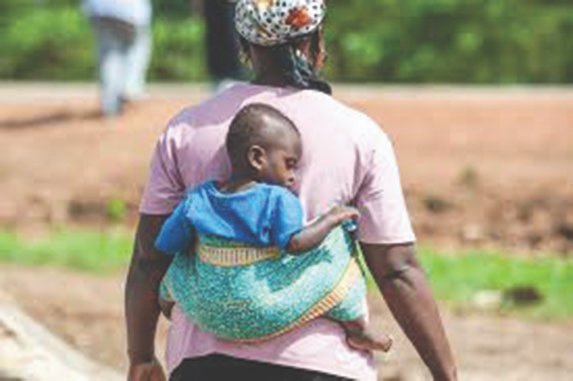Nutrition
Hungry pupils, weak Policies: Why education reform must start with nutrition

In every district across Ghana, children sit in classrooms with their books open but their minds closed off by hunger. Teachers try their best, parents make sacrifices, and government rolls out curriculum reforms.
Yet the invisible barrier remains: an empty plate. Nutrition is the silent factor sabotaging Ghana’s education system, and until policymakers treat it as such, the promise of quality education will remain unfulfilled.
Picture a classroom in rural Ghana. A young boy sits at his desk, his head resting on his arms. His teacher calls on him to read, but his voice is faint and his words stumble. He has not had a proper breakfast. At home, the family eats mostly starchy staples, with little protein or micronutrients. His body is present in school, but his mind is absent.
The missing piece in education policy
Education reforms often focus on infrastructure, teacher training, or examination standards. But without nutrition, these investments deliver half their potential. A child who is stunted in the first five years of life enters school already disadvantaged, their brain underdeveloped, their ability to concentrate impaired. For adolescent girls, anemia robs them of energy, increasing absenteeism and weakening their future prospects.
This is not just a health issue. It is a policy failure when education strategy ignores nutrition. Policymakers must recognise that learning outcomes are directly tied to what children eat before and during school hours.
School Feeding: A missed opportunity
The Ghana School Feeding Programme was designed to bridge this gap, and it has succeeded in drawing children into classrooms. But too often the meals are monotonous, nutrient-deficient, and unbalanced, providing calories without nourishment. A plate of plain rice may temporarily silence hunger pangs, but it cannot build sharp minds or strong bodies.
Here lies the policy challenge: the programme must shift from feeding for numbers to feeding for nutrition. That requires clear standards, consistent funding, and strong monitoring to ensure that meals truly meet the needs of growing children.
What leaders must do
If Ghana wants to close its education gaps, nutrition must be integrated into the core of education planning. This means:
Making nutrition a key performance indicator in the Ministry of Education’s agenda.
Revising school feeding contracts to demand balanced meals with proteins, vegetables, and micronutrients.
Aligning agriculture policy with school meals, so local farmers supply diverse, nutritious foods.
Ensuring that adolescent girls receive iron supplementation through schools to combat anemia.
A call to stakeholders
Parliament must treat school nutrition with the same urgency as curriculum reforms. District assemblies must prioritise nutritious meal provision in their education budgets. Development partners and CSOs must hold government accountable for not just how many children are fed, but how well they are nourished.
Because the truth is simple: Ghana cannot build a skilled workforce, a competitive economy, or a prosperous future on the foundation of hungry, undernourished children.
The future of our education system does not begin with textbooks or blackboards. It begins with a plate of food, and the policies that ensure it is nourishing.
Feature article by Women, Media and Change under its Nourish Ghana: Advocating for Increased Leadership to Combat Malnutrition Project in collaboration with Eleanor Crook Foundation
Join our WhatsApp Channel now!
https://whatsapp.com/channel/0029VbBElzjInlqHhl1aTU27
Nutrition
The First 1,000 Days: Why Ghana’s investment in maternal and child nutrition matters for human capital development

From the start of pregnancy to a child’s second birthday, the first 1,000 days, represents the most important window for human development. Good nutrition shapes the foundation.
During this short window, the body and brain grow at a pace that will never be repeated. When nutrition is inadequate, the damage to physical growth and cognitive development is often permanent. No later investment in education or healthcare can fully reverse these losses. Ghana’s future workforce and economic progress depend on getting nutrition right during this critical period.
Science is clear. A baby’s brain develops rapidly during pregnancy and early childhood, forming the foundation for all future learning and health. Adequate nutrients during pregnancy support the formation of neural connections that underpin learning, memory, and emotional regulation. When pregnant women lack essential nutrients, their babies begin life at a disadvantage. When young children experience severe malnutrition, they miss critical growth periods that do not return.
Ghana faces serious challenges during this critical window. An estimated 68,517 children suffer from severe acute malnutrition. Between 37 and 63 percent of pregnant women are anemic, with iron deficiency particularly common in late pregnancy. These problems translate directly into diminished potential. Malnourished children perform worse in school, earn less as adults, and face higher risks of chronic diseases. The economic losses multiply across generations.
Research worldwide shows that nutrition investments during the first 1,000 days deliver exceptional returns. Well-nourished children learn better, perform better academically, and become more productive adults. Countries that invest in early nutrition experience faster economic growth through stronger, more productive workforces.
Ghana already has effective solutions. Multiple Micronutrient Supplements for pregnant women reduce the risk of low birth weight and preterm birth, while Ready-to-Use Therapeutic Food enables high recovery rates for children with severe acute malnutrition. Both are approved in Ghana’s health guidelines. The problem is not lack of knowledge but lack of access. Coverage remains limited because financing depends heavily on donor support rather than sustainable domestic systems.
Integrating these nutrition interventions into the National Health Insurance Scheme would help close this gap. With a large proportion of mothers and young children already enrolled, NHIS provides a platform for nationwide reach. Recent reforms to health financing further strengthen the case for prioritising essential nutrition services within the scheme.
Ghana’s development agenda emphasizes industrialisation, innovation, and economic transformation. Achieving these goals requires a workforce capable of learning, problem-solving, and sustained productivity. Human capital development, however, does not begin at universities or training centers. It begins before birth.
The first 1,000 days offer no second chances. Each year of delay means another group of children enter adulthood carrying preventable disadvantages. Investing in nutrition during this critical window is not only a health priority; it is a foundational investment in Ghana’s economic future.
Feature article by Womec, Media and Change under its Nourish Ghana: Advocating for Increased Leadership to Combat Malnutrition project
Join our WhatsApp Channel now!
https://whatsapp.com/channel/0029VbBElzjInlqHhl1aTU27

Nutrition
Importance of Fruits During Ramadan

Ramadan, the ninth month of the Islamic lunar (Hijri) calendar, is a period of fasting, reflection, and spiritual growth. A vital part of observing Ramadan is Iftar—the evening meal with which Muslims break their daily fast at sunset. Fruits play an essential role in Iftar, providing nutrition, hydration, and energy after long hours of fasting.
Here are some of the most recommended fruits to include in your Ramadan meals:
Dates
Dates are traditionally used to break the fast. They are rich in sugar, fibre, potassium, vitamins, and minerals, helping to restore energy quickly after fasting.
Watermelon
Watermelon is highly consumed for hydration, as it is composed mostly of water. It can be enjoyed in slices or blended into refreshing smoothies.
Bananas
Bananas are an excellent source of potassium, which helps maintain fluid balance and reduce thirst. They also provide natural energy to keep you going after fasting.
Apples
Apples are fibre-rich and nutritious, promoting heart health, aiding weight management, and improving digestion.
Cucumber
Cucumber is one of the best hydrating fruits, composed of water and fibre, which aids digestion while revitalising the body.
Pawpaw (Papaya)
Pawpaw is low in calories and sugar, rich in fibre, and promotes healthy digestion, hair, and skin. It is a nutritious addition to any Iftar meal.
Including a variety of these fruits during Ramadan not only helps replenish lost nutrients but also supports overall health, digestion, and hydration throughout the fasting period.
By Linda Abrefi Wadie
Join our WhatsApp Channel now!
https://whatsapp.com/channel/0029VbBElzjInlqHhl1aTU27







